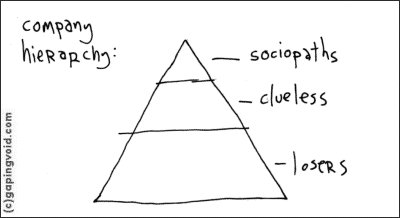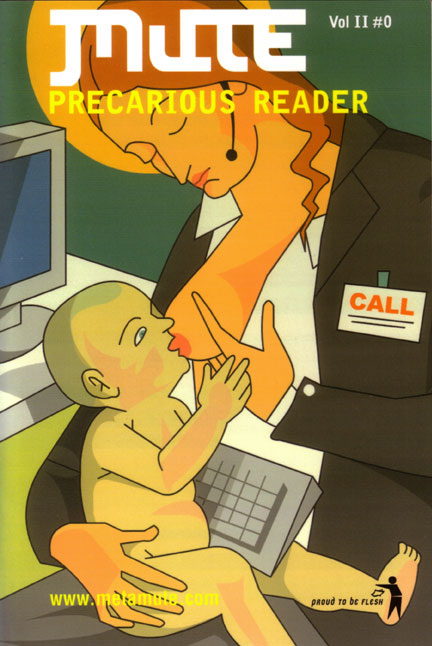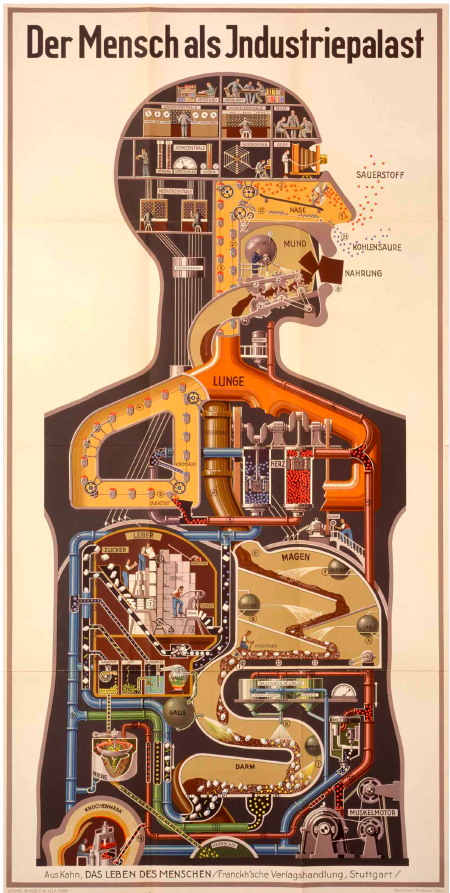I recently came across a rather awesome analysis on Ribbonfarm that adds some much-needed complexity to the basic dichotomy between vertical and horizontal models of corporate control. These fantastic and well-writ posts (The Gervais Principle I and II) have been hit up on Slashdot and have circulated far & wide for good reason. Like Christian Marazzi’s work that deftly summarizes the significance of language to capital – the way language informs the fluctuations of the stock market and global economy (see Capital and Language) – Venkat analyses the way in which language is ab/used by particular players in corporate organisations. He deploys his deft analysis to unravel bureaucratic power principles as well as propose a theory of microclass. And he accomplishes this all by taking as his primary example the hit TV series The Office — Ricky Gervais’ brilliant satire of water cooler politics and management mediocrity. Venkat’s analysis, informed by his research into theories of corporate management, complements Marazzi’s observation that
In the post-Fordist context, in which language has become in every respect an instrument of the production of commodities and, therefore, the material condition of our very lives, the loss of the ability to speak, of the “language capacity,” means the loss of belonging in the world as such, the loss of what “communifies” the many who constitute the community. (Marazzi, Capital and Language: 131).








 RT
RT 